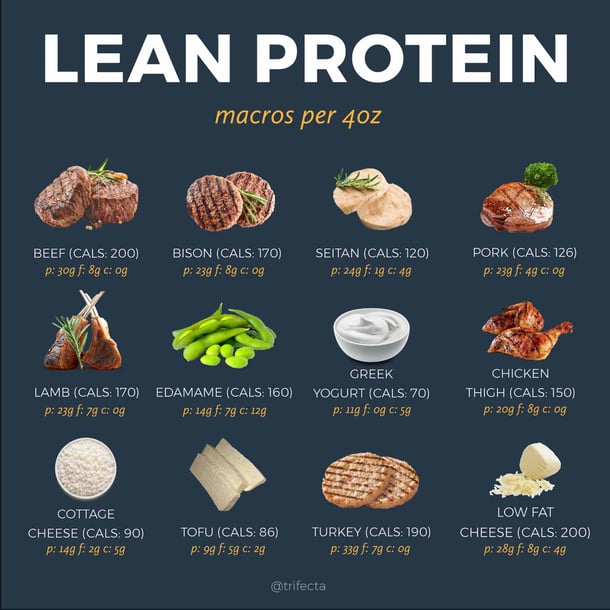CPI Love: Celebrating Passion and Progress
Explore the vibrant world of CPI and discover insights, stories, and news that ignite your passion.
Protein-Packed Plates That Won't Break the Scale
Discover delicious protein-packed recipes that satisfy your cravings without the guilt. Eat well and stay lean with our tasty ideas!
10 High-Protein Meals Under 500 Calories
If you're looking to boost your protein intake without exceeding 500 calories, you're in luck! Here are 10 high-protein meals that not only satisfy your hunger but also help you maintain a balanced diet. Each of these meals is carefully crafted to provide a delicious mix of flavors while ensuring you stay within your calorie limits. Enjoy dishes like grilled chicken salads, quinoa bowls, and baked salmon, all brimming with nutrients and, of course, protein!
- Grilled Chicken Salad: Toss mixed greens with grilled chicken breast, cherry tomatoes, cucumber, and a light vinaigrette.
- Quinoa and Black Bean Bowl: Combine cooked quinoa with black beans, corn, avocado, and a squeeze of lime.
- Baked Salmon: Serve a fillet of salmon with steamed broccoli and a sprinkle of sesame seeds.
- Turkey Lettuce Wraps: Fill lettuce leaves with ground turkey, diced bell peppers, and a dash of soy sauce.
- Egg White Omelet: Make a fluffy omelet with egg whites, spinach, and low-fat cheese.
- Lentil Soup: Prepare a hearty lentil soup filled with carrots, celery, and spices.
- Greek Yogurt Parfait: Layer Greek yogurt with fresh berries and a drizzle of honey.
- Chickpea Stir-Fry: Sauté chickpeas with mixed vegetables and a hint of curry powder.
- Protein-Packed Smoothie: Blend protein powder with spinach, banana, and almond milk.
- Stuffed Bell Peppers: Fill bell peppers with a mixture of lean ground beef, quinoa, and spices.

Understanding Protein: How Much Do You Really Need?
When it comes to protein, understanding how much you really need is essential for maintaining overall health and wellness. Protein is a fundamental nutrient that plays a crucial role in building and repairing tissues, producing hormones, and supporting immune function. The recommended dietary allowance (RDA) for protein varies based on several factors, including age, sex, and activity level. For most adults, the RDA is 0.8 grams per kilogram of body weight. However, athletes or individuals engaged in intense training may require significantly more, often ranging from 1.2 to 2.0 grams per kilogram.
To make informed dietary choices, it's helpful to consider the sources of protein you consume. High-quality protein sources include lean meats, fish, eggs, dairy products, legumes, and nuts. Incorporating a variety of these foods can not only help you meet your protein needs but also provide essential amino acids and other nutrients. Here are some tips to ensure you're getting enough protein:
- Include protein-rich foods in every meal.
- Consider plant-based proteins if you're vegetarian or vegan.
- Snack on nuts, seeds, or yogurt for an easy protein boost.
Can You Build Muscle on a Low-Calorie Diet?
Building muscle generally requires a caloric surplus, as your body needs extra energy to support muscle repair and growth. However, it is possible to build muscle on a low-calorie diet if you carefully manage your macronutrient intake and optimize your training regimen. Protein intake becomes even more critical in this scenario, as it provides the essential building blocks for muscle repair. Aim for at least 1.6 to 2.2 grams of protein per kilogram of body weight to help minimize muscle loss while promoting muscle growth. Incorporating resistance training into your routine is also vital, as it stimulates muscle protein synthesis and encourages hormonal responses that favor muscle building.
Furthermore, the timing of your meals can play a significant role in muscle development while on a low-calorie diet. Consider these tips to enhance your results:
- Prioritize protein-rich foods in each meal to enhance muscle recovery.
- Incorporate a post-workout protein snack to maximize muscle protein synthesis.
- Stay consistent with your strength training routine, focusing on progressive overload to ensure continual muscle adaptation.